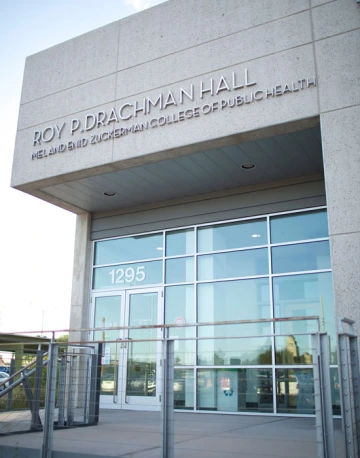Public Health Emergency & Epidemic Preparedness
Graduate Certificate
Quick Facts

4Industry-Specific
Certificates Earned
with Program Completion
#1
In Best Value Among
Arizona's Public Universities
- Payscale, 2024
Are you ready to take on the challenge of assessing and addressing future public health emergencies and epidemics? The Graduate Certificate in Public Health Emergency & Epidemic Preparedness is the only certificate program of its kind in Arizona. It is developed, implemented, and taught by leading experts who have knowledge of how agencies and health services organizations coordinate to respond to public health emergencies and epidemics.
This program will teach you to use epidemiological tools to conduct rapid assessment and public health investigation of emergencies and disease outbreaks. With the guidance of experts, you will learn to conduct contact tracing and demonstrate skills needed to support emergency response at local, state, national, or global levels. You will also be provided the opportunity to demonstrate mastery in organizing an incident command system.
Faculty in this program are professionals in healthcare services, emergency services, law enforcement, and more. They apply their real-world knowledge to help you develop your emergency and epidemic preparedness expertise.
Once you successfully complete this certificate, you will earn three FEMA certificates and a certificate in contact tracing. You will also be able to gain proficiency in the National Incident Management System and attain Centers for Disease Control & Prevention (CDC) Emergency Responder Tier Two level credentials (i.e., Certification in FEMA courses ICS 100, 200, 700, and 800).
Can be completed 100% online and in one year.
*Residents of some U.S. Territories may not be eligible. Please see our Eligibility & State Authorization page for more information.
This certificate requires the completion of three required courses and one elective course (12 credits total). The required courses are HPS 559 and EHS 589, EHS 900. You may then choose one course from the list below:
This course will analyze the etiology and distribution of major tropical infectious diseases and the environmental, economic, and cultural factors that lead to their proliferation. Impact on development and global prevention initiatives will be appraised.
Gain a basic knowledge of public health preparedness and response using an all-hazards approach: nuclear, biological, chemical, and natural disasters. You will have an opportunity to apply this content in a mock critical incident event.
An introduction to sampling techniques and analytical methods to measure environmental contamination in the air, water, soils, and food. There is an emphasis on instrument selection and quality control, including documentation, calibration, and sample management.
This course provides an overview of common and emerging Environmentally Acquired Illnesses (EAIs) and explores the multitude of hazards, conditions, and predisposing factors related to human disease. Learn how to identify gaps in the current model of patient evaluation and treatment.
This course examines historical and present-day outbreaks in regard to the environmental microbiology of pathogens. Different pathogens control interventions that were used to mitigate the outbreaks will also be explored.
This course introduces a transdisciplinary One Health framework that focuses on the interconnection between people, animals, and the environment to examine health drivers and outcomes at local, regional, national and global levels.
Learn to analyze the etiology and distribution of major tropical infectious diseases and the environmental, economic, and cultural factors that lead to their proliferation. Impact on development and global prevention initiatives will be appraised.
This course will provide graduate level and working professionals. perspective on step-by-step principles to develop an emergency response plan and implementation strategy, including advocacy and resources mobilization.
Outcomes
Skills
Earning your Graduate Certificate in Public Health Emergency & Epidemic Preparedness will build core skills, including:
- Emergency management
- Emergency response
- Contact tracing
- Risk assessment
- Public health investigation
- Disaster risk reduction
- Emergency planning procedures
- Setting incident command response
- Using epidemiological tools
- Analytical thinking
- Problem solving
- Communication
Potential Career Paths
Graduates of the Public Health Emergency & Epidemic Preparedness Graduate Certificate program will be prepared to pursue careers in the following fields:











